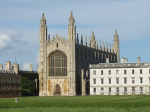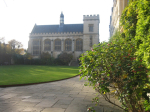World News
-
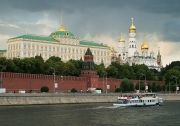 Russia threatens to target British military assets following Foreign Secretary's comments
Russia's Foreign Ministry has escalated tensions by designating the United Kingdom as a "party to the conflict" and issuing a stark warning of potential targeting of British military sites andRead More...
Russia threatens to target British military assets following Foreign Secretary's comments
Russia's Foreign Ministry has escalated tensions by designating the United Kingdom as a "party to the conflict" and issuing a stark warning of potential targeting of British military sites andRead More... -
 Bomb threat evacuates British Airways flight from Bermuda to London
Passengers scheduled to travel from Bermuda to London found themselves evacuated from the plane following the receipt of a bomb threat via email at LF Wade International Airport.Read More...
Bomb threat evacuates British Airways flight from Bermuda to London
Passengers scheduled to travel from Bermuda to London found themselves evacuated from the plane following the receipt of a bomb threat via email at LF Wade International Airport.Read More... -
 UK Foreign Secretary Lord Cameron's historic visit to Ashgabat: strengthening bilateral relations with Turkmenistan
British Foreign Secretary, Lord David Cameron, embarked on a significant diplomatic mission with his visit to Ashgabat, marking the first instance of a UK Foreign Secretary setting footRead More...
UK Foreign Secretary Lord Cameron's historic visit to Ashgabat: strengthening bilateral relations with Turkmenistan
British Foreign Secretary, Lord David Cameron, embarked on a significant diplomatic mission with his visit to Ashgabat, marking the first instance of a UK Foreign Secretary setting footRead More... -
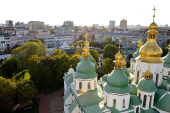 British Foreign Secretary affirms Ukraine's right to defensive action amid Russian incursions
British Foreign Secretary Lord Cameron, during his visit to Kyiv, asserted that Ukraine possesses the autonomy to determine the utilization of British weaponry and emphasizedRead More...
British Foreign Secretary affirms Ukraine's right to defensive action amid Russian incursions
British Foreign Secretary Lord Cameron, during his visit to Kyiv, asserted that Ukraine possesses the autonomy to determine the utilization of British weaponry and emphasizedRead More... -
 Pro-China candidate emerges victorious in Solomon Islands prime ministerial vote
In a significant development indicating the enduring alliance between the Solomon Islands and Beijing, lawmakers have elected a pro-China candidate as their prime minister.Read More...
Pro-China candidate emerges victorious in Solomon Islands prime ministerial vote
In a significant development indicating the enduring alliance between the Solomon Islands and Beijing, lawmakers have elected a pro-China candidate as their prime minister.Read More...

Culture
-
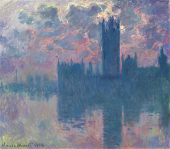 Fake Monet and Renoir paintings detected on eBay using AI
Up to 40 counterfeit paintings, including alleged works by Monet and Renoir, have been identified for sale on eBay, according to research conducted by Dr. Carina Popovici, an expertRead More...
Fake Monet and Renoir paintings detected on eBay using AI
Up to 40 counterfeit paintings, including alleged works by Monet and Renoir, have been identified for sale on eBay, according to research conducted by Dr. Carina Popovici, an expertRead More... -
 Pippa Middleton and James Matthews unveil lodge at Bucklebury Farm
Pippa Middleton and her billionaire husband James Matthews have inaugurated the lodge at Bucklebury Farm Park in Berkshire, offering a venue for parties, events, and Pilates sessions.Read More...
Pippa Middleton and James Matthews unveil lodge at Bucklebury Farm
Pippa Middleton and her billionaire husband James Matthews have inaugurated the lodge at Bucklebury Farm Park in Berkshire, offering a venue for parties, events, and Pilates sessions.Read More... -
 Five British museums nominated for prestigious arts prize
Museums across Skipton, Dundee, Manchester, and London are vying for the esteemed title of Museum of the Year 2024.Read More...
Five British museums nominated for prestigious arts prize
Museums across Skipton, Dundee, Manchester, and London are vying for the esteemed title of Museum of the Year 2024.Read More... -
 Gustav Klimt portrait sells for £25.7 million at Vienna auction
A long-lost portrait by Gustav Klimt, depicting a young woman, fetched a staggering 30 million euros (£25.7 million) at an auction held in Vienna on Wednesday.Read More...
Gustav Klimt portrait sells for £25.7 million at Vienna auction
A long-lost portrait by Gustav Klimt, depicting a young woman, fetched a staggering 30 million euros (£25.7 million) at an auction held in Vienna on Wednesday.Read More... -
 Rishi Sunak: remembering those lost in terror attack
In his Passover message to the Jewish community, Prime Minister Rishi Sunak acknowledges the somber reality that "for too many families, there will be empty seats" at the Seder table thisRead More...
Rishi Sunak: remembering those lost in terror attack
In his Passover message to the Jewish community, Prime Minister Rishi Sunak acknowledges the somber reality that "for too many families, there will be empty seats" at the Seder table thisRead More... -
 Co-op Live: Manchester's new arena opens with high capacity and ambitions
A monumental addition to Manchester's entertainment landscape, the new £365m Co-op Live arena is poised to claim the title of the largest indoor arena in the UK. Nestled beside ManchesterRead More...
Co-op Live: Manchester's new arena opens with high capacity and ambitions
A monumental addition to Manchester's entertainment landscape, the new £365m Co-op Live arena is poised to claim the title of the largest indoor arena in the UK. Nestled beside ManchesterRead More... -
 Brontë birthplace unveils open day prior to renovation
The birthplace of the renowned Brontë sisters is set to welcome visitors for a special glimpse inside before embarking on a significant refurbishment.Read More...
Brontë birthplace unveils open day prior to renovation
The birthplace of the renowned Brontë sisters is set to welcome visitors for a special glimpse inside before embarking on a significant refurbishment.Read More... -
 Taylor Swift's 'The Tortured Poets Department' smashes Spotify record
Taylor Swift's latest album, "The Tortured Poets Department," has shattered Spotify's record for the most-streamed album in a single day, the platform has announced. Not only did Swift'sRead More...
Taylor Swift's 'The Tortured Poets Department' smashes Spotify record
Taylor Swift's latest album, "The Tortured Poets Department," has shattered Spotify's record for the most-streamed album in a single day, the platform has announced. Not only did Swift'sRead More... -
 Historic London pub, linked to Royalty, ravaged by fire: a heartbreaking loss
A renowned London pub, steeped in history dating back possibly to the 16th century, has suffered extensive damage in a devastating fire. The Burn Bullock, a grade II-listed establishmentRead More...
Historic London pub, linked to Royalty, ravaged by fire: a heartbreaking loss
A renowned London pub, steeped in history dating back possibly to the 16th century, has suffered extensive damage in a devastating fire. The Burn Bullock, a grade II-listed establishmentRead More... -
 Salvator Rosa painting stolen from Oxford, recovered in Romania, and returned to UK
A painting valued at EUR 2 million, stolen from an art gallery at Oxford University approximately four years ago, has been recovered in Romania and returned to UK judicial authorities,Read More...
Salvator Rosa painting stolen from Oxford, recovered in Romania, and returned to UK
A painting valued at EUR 2 million, stolen from an art gallery at Oxford University approximately four years ago, has been recovered in Romania and returned to UK judicial authorities,Read More... -
 Plans to demolish former Museum of London site put on pause
A last-minute intervention from Levelling Up Secretary Michael Gove has halted plans to demolish the former Museum of London site.Read More...
Plans to demolish former Museum of London site put on pause
A last-minute intervention from Levelling Up Secretary Michael Gove has halted plans to demolish the former Museum of London site.Read More... -
 June’s London Fashion Week returns with fresh concept
The British Fashion Council has unveiled an innovative approach for the upcoming London Fashion Week in June, aiming to spark a cultural phenomenon. Set to take place fromRead More...
June’s London Fashion Week returns with fresh concept
The British Fashion Council has unveiled an innovative approach for the upcoming London Fashion Week in June, aiming to spark a cultural phenomenon. Set to take place fromRead More... -
 London's inaugural Taiwanese culture festival explores island's identity and history
London's vibrant Notting Hill district is about to experience a taste of Taiwanese culture with the launch of the 16-day Taiwan Festival on Friday, April 12.Read More...
London's inaugural Taiwanese culture festival explores island's identity and history
London's vibrant Notting Hill district is about to experience a taste of Taiwanese culture with the launch of the 16-day Taiwan Festival on Friday, April 12.Read More...

British Queen celebrates
Most Read
- Teen held after US woman killed in London stabbings
- Heave-ho Harry! Prince prepares to join the walking wounded in ice trek to North Pole
- Football: Farhad Moshiri adamant Everton deal above board
- "Master of English Style". Interview with Designer Lydia Dart
- Letter to the Financial Times from Lord Mayor Alderman Michael Bear
Media

Venerable US magazine Newsweek announced Thursday its last print edition would be December 31, saying it would turn all-digital to cut costs in an increasingly challenging media environment.
"We are transitioning Newsweek, not saying goodbye to it," wrote Tina Brown, editor-in-chief and founder of the online Newsweek Daily Beast Company, in a statement posted on the Daily Beast website.
"This decision is not about the quality of the brand or the journalism -- that is as powerful as ever. It is about the challenging economics of print publishing and distribution."
Brown acknowledged the merger of the print edition and the online Daily Beast operations, called "Newsweek Global," would require layoffs.
She said the all-digital publication "will be a single, worldwide edition targeted for a highly mobile, opinion-leading audience who want to learn about world events in a sophisticated context.
It will be available on the web and on tablets via a paid subscription, with "select content" available on The Daily Beast website.
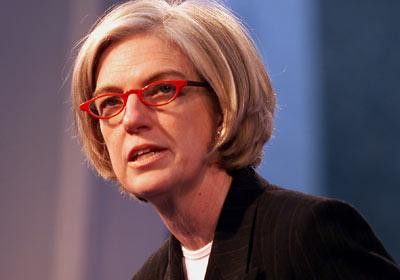
Dame Marjorie Scardino - the first woman to head a FTSE 100 company - is to step down as chief executive of Penguin books and Financial Times owner Pearson.
Dame Marjorie's departure at the end of the year will leave just three female chief executives among London's top 100 public companies as she will be replaced by John Fallon, head of Pearson's international education arm.
The 65-year-old transformed Pearson when she joined as chief executive in 1997 from a diverse conglomerate, owning a range of unconnected businesses from Alton Towers to Thames Television, to a more focused "learning" company.
Announcing her departure, the American-born British citizen said: "It has been a privilege to be part of such a great company for a small part of its history."
Angela Ahrendts at fashion group Burberry, Cynthia Carroll at miner Anglo American and Alison Cooper of Imperial Tobacco will be the remaining female chief executives on the FTSE 100 Index.
The Government-commissioned Lord Davies review, published in February 2011, recommended that firms listed on the FTSE 100 Index should aim for a minimum of one in four female board members by 2015.
A voluntary code, developed in response to the Lord Davies review, was implemented in July 2011 to set out key principles of best practice for executive firms.
The number of women in the boardroom's of the UK's top companies increased in the past year, according to a progress update from the Department of Business, Innovation and Skills in July this year. Women now make up 16.7% of FTSE 100 Index, up from 12.5% at the time of the Lord Davies report, and 10.9% of FTSE 250 boards, up from 7.8%.
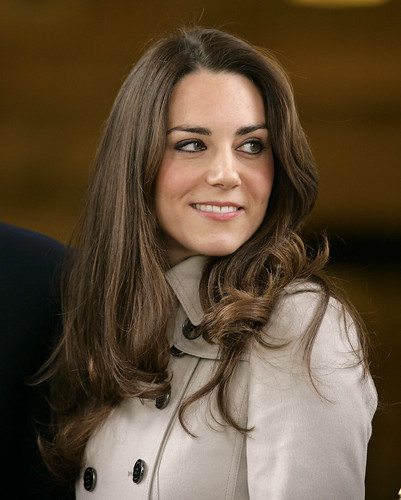
French magazine Closer said its editor Laurence Pieau had received death threats for publishing pictures of Prince William's wife Catherine sunbathing topless.
"We have received more than 300 insulting emails of which several contain death threats," Closer said, adding that it had notified the police.
Fourteen of the most violent messages addressed to Pieau were handed over to the police. One vowed to "never let her stay in peace."
After their debut in the French weekly, the photos of the British Duchess of Cambridge have appeared in magazines in Denmark and Sweden, Ireland's Daily Star and Italy's Chi, which like Closer is owned by former prime minister Silvio Berlusconi's Mondari media group.
The pictures were taken when the royals were vacationing in southern France at a chateau owned by Viscount Linley, the son of Princess Margaret, the deceased sister of Britain's Queen Elizabeth II.
After publication, Pieau defended them saying they were not in the "least shocking".
"They show a young woman sunbathing topless, like the millions of women you see on beaches," she told AFP.
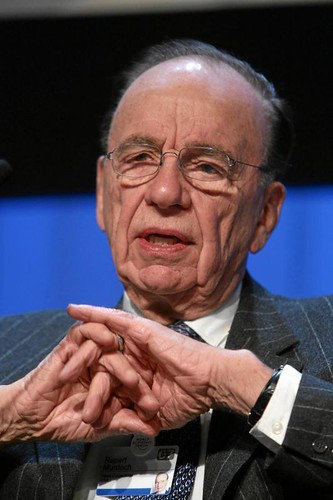
News Corporation has reported a loss in its quarterly results, with the company facing ongoing legal charges over the phone-hacking scandal.
The firm's net loss was 1.6 billion dollars (£1 billion) for the three months to the end of June, compared with a net income of 683 million dollars (£436.2 million) in the same period last year.
Publishing profits fell to 139 million dollars (£88.8 million), from 270 million dollars (£172 million).
The company's full year results included a 224 million dollar (£143 million) charge related to "the costs of the ongoing investigations initiated upon the closure of The News of the World". This included a 57 million dollar (£36.4 million) charge in the last quarter.
Commenting on the results, News Corp boss Rupert Murdoch said the company was in a "strong" position which would be enhanced by plans to split the company into two parts - separating its entertainment businesses from publishing assets including The Sun and The Times.
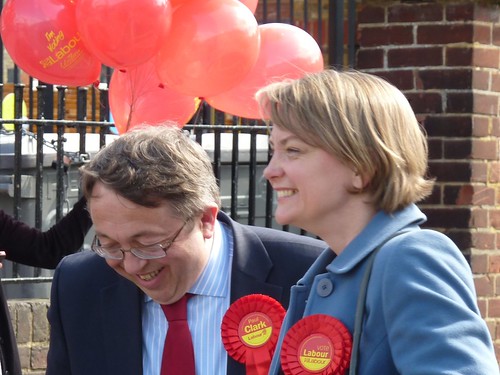
Weakened security laws allowed a suspected terrorist to get close to the venue for the Olympic Games five times in recent months, Labour has said.
Shadow home secretary Yvette Cooper demanded to know whether the incidents posed a threat to London 2012 safety and pointed the finger at watered-down Government anti-terror measures.
Court papers show that the 24-year-old, known as CF, was arrested and faces criminal proceedings after the authorities found he took trains through the Olympic Park despite being banned from the area.
His movements were picked up because he has to wear an electronic tag as part of restrictions imposed on him by an order under the Terrorism Prevention and Investigation Measures Act - referred to as a "Tpim".
CF's lawyers insist that he only used the route to visit a solicitor dealing with his legal challenge against the order - due to be heard by the High Court on Monday - and had been wrongly advised that was OK.
But Labour said the fact that he was able to be in the capital at all - after being ordered under the previous anti-terror regime to stay out of the capital altogether - highlighted a serious problem.
Tpims replaced the control orders system previously used to restrict the movements and contacts of individuals thought to pose a risk to the public but who cannot be tried for reasons of national security.

A prison officer and two other people have been arrested in connection with the police probe into corrupt payments to officials by journalists.
Two men aged 46 and 37 and a woman aged 50 have been held at addresses in south-east London, Surrey and Kent.
They are being questioned at separate south London police stations, Scotland Yard said.
The Metropolitan Police said the 46-year-old prison officer was arrested at his south-east London home on suspicion of corruption, conspiracy to commit bribery and conspiracy to cause misconduct in a public office.

Alan Turing, the Second World War codebreaker widely regarded as the father of modern computing, may not have committed suicide but died as a result of an accident, an academic has claimed.
Evidence gathered after the death of the scientist from cyanide poisoning at the age of 41 in 1954 was "overlooked" and he could have died as a result of inhaling the poison he used in amateur experiments rather than deliberately ingesting it, according to Professor Jack Copeland.
Prof Copeland, director of the The Turing Archive for the History of Computing and author of a new biography of the academic to be published shortly, spoke as events took place around the country to celebrate the centenary of the under-appreciated scientific genius's birth.
"From the records I have been able to obtain, it seems to me very obvious that the inquest was conducted in a very superficial way," he said. "The coroner didn't really investigate the evidence at all, he just jumped to the conclusion that he committed suicide. He seems to have been very biased from the statements in newspapers at the time."
The coroner in Turing's death case ruled he committed suicide "while the balance of his mind was disturbed", adding: "In a man of his type, one never knows what his mental processes are going to do next."
Turing, who was gay, was found guilty of gross indecency with another man in 1952. To avoid prison, he agreed to receive injections of oestrogen for a year, which were intended to reduce his libido in a process known as "chemical castration".
Copeland, a Professor at the University of Canterbury Christchurch in New Zealand, will talk about Turing's death at an event in Oxford.

Hebrew graffiti thanking the Nazi leader Adolf Hitler for the Holocaust and denouncing Zionism were sprayed inside the Yad Vashem Holocaust museum in Jerusalem, an AFP correspondent said on Monday.
Seven giant slogans, including one which read: "Thank you Hitler for your wonderful Holocaust that you arranged for us, it's only because of you that we got a state at the UN" were sprayed in Warsaw Ghetto Square near the sculpture depicting the Warsaw Ghetto uprising.
More graffiti was sprayed next to the cattle car memorial, which remembers how millions of Jews were transported from all over Europe to the Nazi death camps.
Other slogans read: "The Zionist leadership wanted the Holocaust" and "If Hitler hadn't existed, the Zionists would have invented him."
Another said: "The war of the Zionist regime is not the war of the Jewish people," fuelling suspicion that a small fringe of ultra-Orthodox Jews, who are virulently opposed to the state of Israel, were to blame.
The red, white and black graffiti was written in both formal Hebrew characters as well as in hand-written script and signed "The global cynical mafia."
Police spokesman Micky Rosenfeld confirmed basic details of the incident, and said an investigation had been opened.
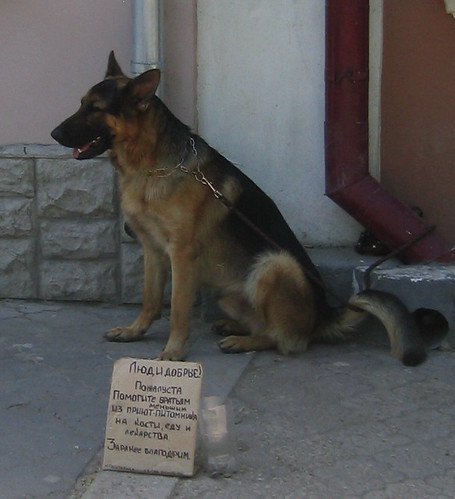
In a clinic in the Ukrainian capital Kiev, two vets lean over a sleeping puppy and deftly remove its ovaries and uterus.
After a storm sparked by the Euro 2012 co-host's alleged cull of the stray dogs that plague the country's streets, animal rights campaigners have stepped in to try to control the errant canines by sterilising them.
At the helm is Austrian organisation Vier Pfoten (Four Paws), which is launching a programme notably in the four cities hosting matches in Euro 2012: Kiev, plus Lviv in the west and Donetsk and Kharkiv in the east.
Mindful of the expected influx of hundreds of thousands of fans, plus a global television audience of millions, ex-Soviet Ukraine has been working to spruce up its cities and burnish its image.
Tackling the growing numbers of strays that roam their streets has been part of those moves, also driven by serious concerns about feral dog attacks -- which reportedly hit 2,800 in Kiev alone in 2010.
Last year, according to critics, Ukrainian authorities decided to take radical steps to wipe out as many of the animals as possible before the tournament, which kicks off on June 8 in co-host Poland and ends in Kiev on July 1.
Animal rights campaigners around the world condemned what they said was the extermination of thousands of dogs, claiming some were poisoned or burned alive.
In the face of the protests, the authorities ordered a halt to the killings at the end of 2011.
Vier Pfoten decided to come up with an alternative and in February signed a deal with Ukraine.
"The idea here is to use the atmosphere, the world's focus and the European championship to develop something very, very long term," said Four Paws representative Nicolas Entrup.
"Once the final is played, the football atmosphere will be gone, but we will stay in Ukraine and work with Ukrainians to help animals," he added.
Working out of mobile clinics, some 520 people are being mustered for the programme, including 60 vets from Ukraine and beyond.
"Our ambition is here to provide a positive solution, a positive programme where people work together with animal welfare, activists as well as veterinary experts," said Entrup.
"It's a positive programme to stop the killing of stray dogs, to decline their population, so the relation between people and animals can flourish and be positive," he underlined.
The programme was launched in Kiev several weeks ago and is ongoing in a dusty city district where old houses stand alongside Soviet-era towerblocks.
Guided by local residents, a handful of Vier Pfoten experts, including a vet and a dog catcher, come across a pack of six dogs.
Vet Cornel Stoenescu, from Romania, fires a tranquiliser dart and hits a black dog in the haunch.
The animal begins to limp and then lies down, before the team cages it and drive to a veterinary school.
An elderly woman asks what's going on.
"We're going to sterilise it, vaccinate it and bring it back here," explains a young volunteer named Daria.

Yulia Tymoshenko case is one of topical issues in European policy today. Her apprehension and a subsequent conflict in the Ukrainian community became the subject of close attention from Europeans. Mostly all leaders of EU countries, and key officials of the European Parliament and European Commission have expressed their stance in this regard. At the end of March, the interim committee (chaired by Inna Bohoslovska) of the Verkhovna Rada of
On 10 April 2012, Inna Bohoslovska held a press conference on a topic “Why Tymoshenko is still in prison” attended by European journalists, experts and public members, at the premises of NCI European Parliament in
а) concealed from the public and government the facts of the conflict of interests and dependence on Russia, particularly, the debt of her privately-owned companies to the Ministry of Defence of the Russian Federation in the amount of USD 405 million, and a bribery case against her;
b) held secret talks with the Prime Minister of Russia and agreed to unfair contracts, thus, violating signed international treaties;
c) issued Directives on signing the contracts being aware of the Government of Ukraine having withdrawn from approving them, however the Cabinet of Ministers only – as a collegial body – is entitled to issue such directives;
d) brought pressure on the company head subordinate to her and made him sign the contracts threatening to fire.
Pursuant to a comparative analysis of the laws of











